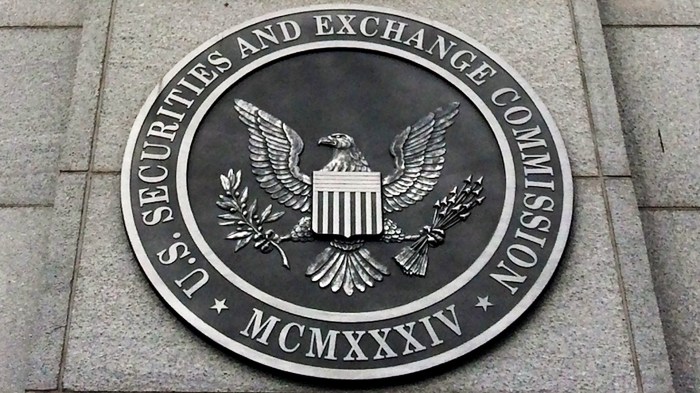Diving into the world of finance, Understanding the role of the SEC sheds light on the crucial functions and impact of this regulatory body in the financial sector. Get ready to explore the ins and outs of SEC regulations and how they shape the market landscape.
Importance of the SEC
The Securities and Exchange Commission (SEC) plays a crucial role in overseeing the financial markets in the United States. It is responsible for enforcing securities laws, regulating the securities industry, and protecting investors from fraudulent activities.
Role of the SEC in Financial Markets
The SEC ensures that companies disclose accurate and timely information to the public, which helps investors make informed decisions. By regulating the securities industry, the SEC promotes transparency and fairness in the market.
Examples of How the SEC Protects Investors
- The SEC investigates and takes legal action against individuals or companies engaged in insider trading, Ponzi schemes, or other fraudulent activities that harm investors.
- Through the enforcement of rules like the Sarbanes-Oxley Act, the SEC holds companies accountable for their financial reporting practices, safeguarding investors’ interests.
- The SEC provides resources and educational materials to help investors understand their rights and make sound investment choices.
Significance of SEC Regulations in Maintaining Market Integrity
SEC regulations prevent market manipulation, fraud, and misconduct, ensuring a level playing field for all market participants.
The rules enforced by the SEC help maintain investor confidence in the financial markets, promoting stability and integrity in the system.
Functions of the SEC
The Securities and Exchange Commission (SEC) plays a crucial role in regulating the financial markets to protect investors and maintain fair and efficient markets.
Responsibilities of the SEC in overseeing securities transactions
- The SEC reviews and approves registration statements for securities offerings to ensure that investors receive accurate and timely information.
- It monitors the activities of market participants, such as brokers, dealers, and investment advisors, to prevent fraud and market manipulation.
- The SEC enforces rules and regulations related to securities trading to promote market integrity and investor confidence.
Enforcement of securities laws by the SEC
- The SEC investigates potential violations of securities laws through inspections, examinations, and enforcement actions.
- It has the authority to bring civil lawsuits or administrative proceedings against individuals or entities that violate securities laws.
- The SEC works with other law enforcement agencies to prosecute criminal violations of securities laws.
Role of the SEC in promoting transparency and accountability
- The SEC requires public companies to disclose relevant financial information to investors through periodic filings and reports.
- It conducts investigations and inquiries to uncover financial fraud and misconduct, holding wrongdoers accountable.
- By promoting transparency and accountability, the SEC helps to maintain trust and confidence in the financial markets.
SEC Regulations
In order to maintain fair and transparent markets, the SEC enforces a variety of regulations that impact both businesses and investors. These regulations are put in place to protect investors and ensure the integrity of the financial system.
Key Regulations Enforced by the SEC
- Securities Act of 1933: Requires companies to disclose certain information to investors when offering securities for sale.
- Securities Exchange Act of 1934: Regulates securities exchanges and requires companies to file regular financial reports.
- Sarbanes-Oxley Act of 2002: Imposes strict regulations on corporate governance and financial disclosures.
Impact of SEC Regulations
- Businesses: SEC regulations can increase compliance costs for businesses, but they also help build investor confidence and trust.
- Investors: Regulations protect investors from fraud and ensure they have access to relevant and accurate information when making investment decisions.
Examples of SEC Violations
- Enron: One of the most notorious cases of SEC violations, where the company manipulated financial statements to hide losses.
- Bernie Madoff: Ran a Ponzi scheme that defrauded investors of billions of dollars, violating multiple SEC regulations.
- Theranos: The biotech company misled investors about its technology, leading to SEC charges of massive fraud.
Impact of SEC Actions

When the SEC takes action, it can have a significant impact on market confidence and the behavior of investors. The regulatory decisions made by the SEC can influence how companies operate and how investors perceive the overall market.
Influence on Market Confidence
- SEC actions such as implementing new regulations or enforcing existing ones can enhance market transparency and integrity, leading to increased investor trust.
- Investors are more likely to feel secure and confident in the market when they see the SEC taking proactive steps to regulate and monitor financial activities.
- Market participants may adjust their strategies and decisions based on the SEC’s actions, affecting market dynamics and overall stability.
Effects on Companies’ Stock Prices
- SEC investigations into a company’s financial practices or disclosures can lead to a decline in its stock price as investors react to potential risks and uncertainties.
- Negative findings or penalties imposed by the SEC can result in a loss of investor confidence, impacting the company’s valuation in the stock market.
- Companies under SEC scrutiny may experience increased volatility in their stock prices as market participants assess the implications of regulatory actions.
Precedents for Future Regulatory Decisions
- SEC rulings on specific cases can establish precedents that guide future regulatory decisions and enforcement actions in similar situations.
- Legal interpretations and enforcement approaches taken by the SEC can shape the regulatory landscape and influence how market participants comply with securities laws.
- Market participants often look to past SEC rulings as indicators of how the regulatory environment may evolve and impact their operations in the future.
